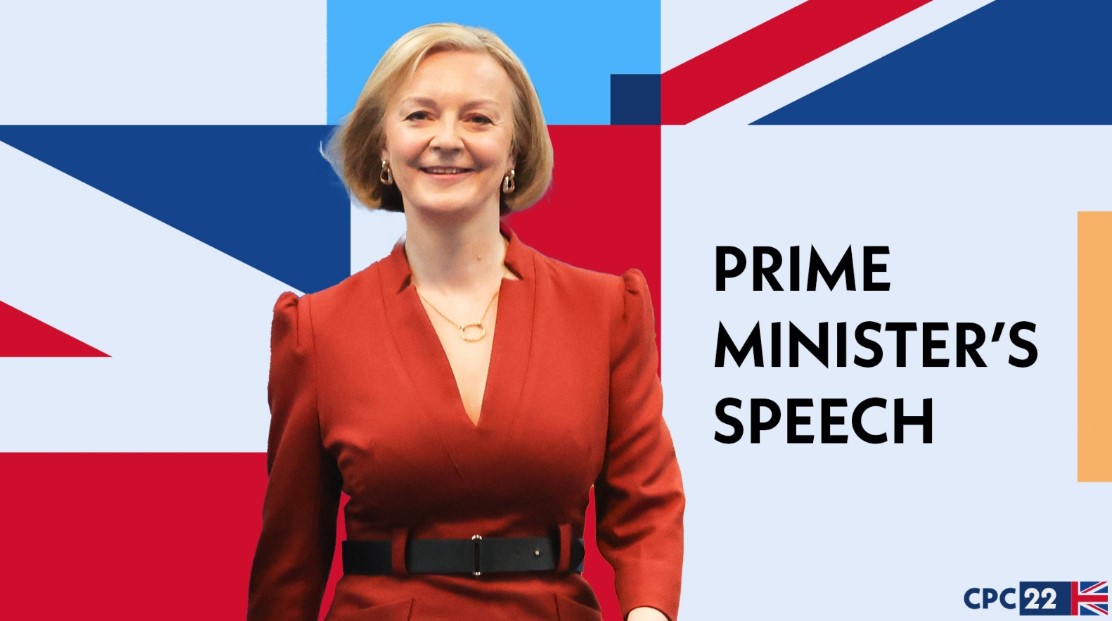
I listened to the new British Prime Minister, Liz Truss, speaking at her Conservative Party conference. She mentioned “growth” 29 times.
I know what it is like to live somewhere that isn’t feeling the benefits of economic growth …
Low growth isn’t just numbers on a spreadsheet. Low growth means lower wages, fewer opportunities and less money to spend on the things that make life better …
That is why I am determined to take a new approach and break us out of this high-tax, low-growth cycle …
I have three priorities for our economy: growth, growth and growth. Growth means more money in people’s pockets it means businesses creating jobs. Growth means people can feel secure and they can plan for their future. Fundamentally, growth helps people fulfil their hopes and their dreams.
I could go on, but you can read the speech here.
It was strange listening, as I was reading another article about “degrowth”. Degrowth is to contract economies to assist with climate change. Gail Bradbrook has written about this a few times in her blogs on my site, arguing that this is the way forward. I’ve written about it too, saying that it won’t work.
In my view, ReFi is better than degrowth and, both ways, we need a new economic paradigm. This is something I’ve believed for many years, inspired by the late Bernard Lietaer, the Belgian central banker who was one of the founders of the idea of Long Finance. This is a topic that can be discussed for days, months and years but, rather than going down that rabbit hole, let’s quote Liz Truss (UK PM) once more:
The talking heads, the Brexit deniers and Extinction Rebellion and some of the people we had in the hall earlier. The fact is they prefer protesting to doing. They prefer talking on Twitter to taking tough decisions.
Interesting choice of words when Gail and her colleagues are being jailed for their activist protests. Being able to accept you will spend months in prison, I would claim, is a tough decision.
Nevertheless, let’s avoid politics. I just wanted to quote another influence in my life, Philip Kotler. Kotler’s Principles of Marketing was published in 1980, and was the go-to book when I was at university if you wanted to understand marketing practices, one of my specialist subjects back then.
The Distinguished Professor of International Marketing at the Kellogg School of Management at Northwestern University USA, keeps writing new ideas. His latest is degrowth? For a man who has spent a long time encouraging us to consume through marketing, that seems a bit weird, doesn’t it, but he is now saying we should consume and spend and grow ... slower.
Degrowth: the case for constraining consumption was published in July on BBF Digital. The article cannot be cut and pasted, but I think there are a few key statements, such as:
Nonstop Capitalism pushes consumption far beyond what mankind needs … Nonstop Capitalism is leading to deforestation, overfishing, soil erosion, mass extinction of species, and more fires, extreme storms, and floods …
Growth is the unquestioned goal in politics, in economics and in societies. But this goal will ultimately lead to disaster in a world of diminishing resources … the challenge is to promote wellbeing, equity, and sustainability as our guideposts in moving toward more sensible growth.
I recommend you read the whole article. Philip Kotler taught me the basics of marketing and how to get consumers to part with their hard earned money. He’s now teaching us how to reverse that process.
Growth or degrowth?
You cannot have both, but the UK Prime Minister’s speech about growth, growth, growth yesterday was a weird juxtaposition as I was reading from my University mentor that we should focus upon degrowth, degrowth, degrowth.
Chris M Skinner
Chris Skinner is best known as an independent commentator on the financial markets through his blog, TheFinanser.com, as author of the bestselling book Digital Bank, and Chair of the European networking forum the Financial Services Club. He has been voted one of the most influential people in banking by The Financial Brand (as well as one of the best blogs), a FinTech Titan (Next Bank), one of the Fintech Leaders you need to follow (City AM, Deluxe and Jax Finance), as well as one of the Top 40 most influential people in financial technology by the Wall Street Journal's Financial News. To learn more click here...

